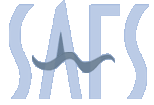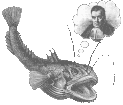UW Aquatic & Fishery Sciences Quantitative Seminar
Jennifer Ruesink
Professor, UW, Biology
Biogeographic comparisons of allometry and productivity in a widespread marine ecosystem engineer
Abstract
Wide-ranging species that are ecological generalists can be characterized by distinct phenotypes throughout their range, easily sorted by even the untrained eye. Yet detecting whether such differences are simply a function of size, or also represent distinct shapes and growth patterns requires quantitative analysis. In this talk I capitalize on the unique data set generated by the Zostera Experimental Network, which provided trait data for Zostera marina (eelgrass), a foundation species spanning 30 degrees of latitude and two ocean basins. I specifically examine random site effects (slope and intercept) to evaluate whether eelgrass size morphotypes share common form-function relationships in summer. A major advance from this distributed study was the capacity to distinguish within- and across-site variability in form and productivity of a foundation species, providing novel insight into aspects of its functional role in coastal ecosystems from shoot to biogeographic scales, while also linking scale-dependence in allometry to differential variability among eelgrass traits.

